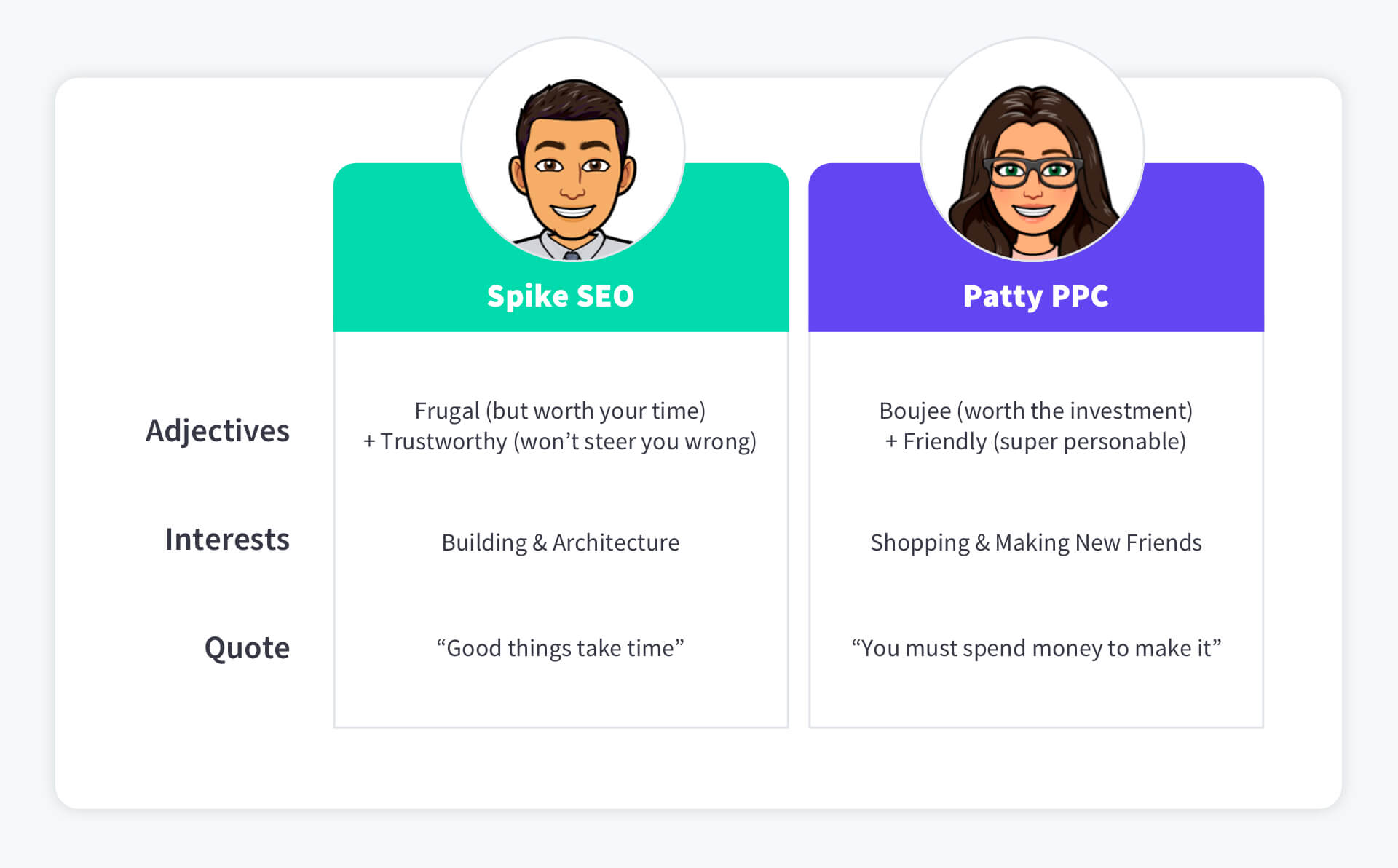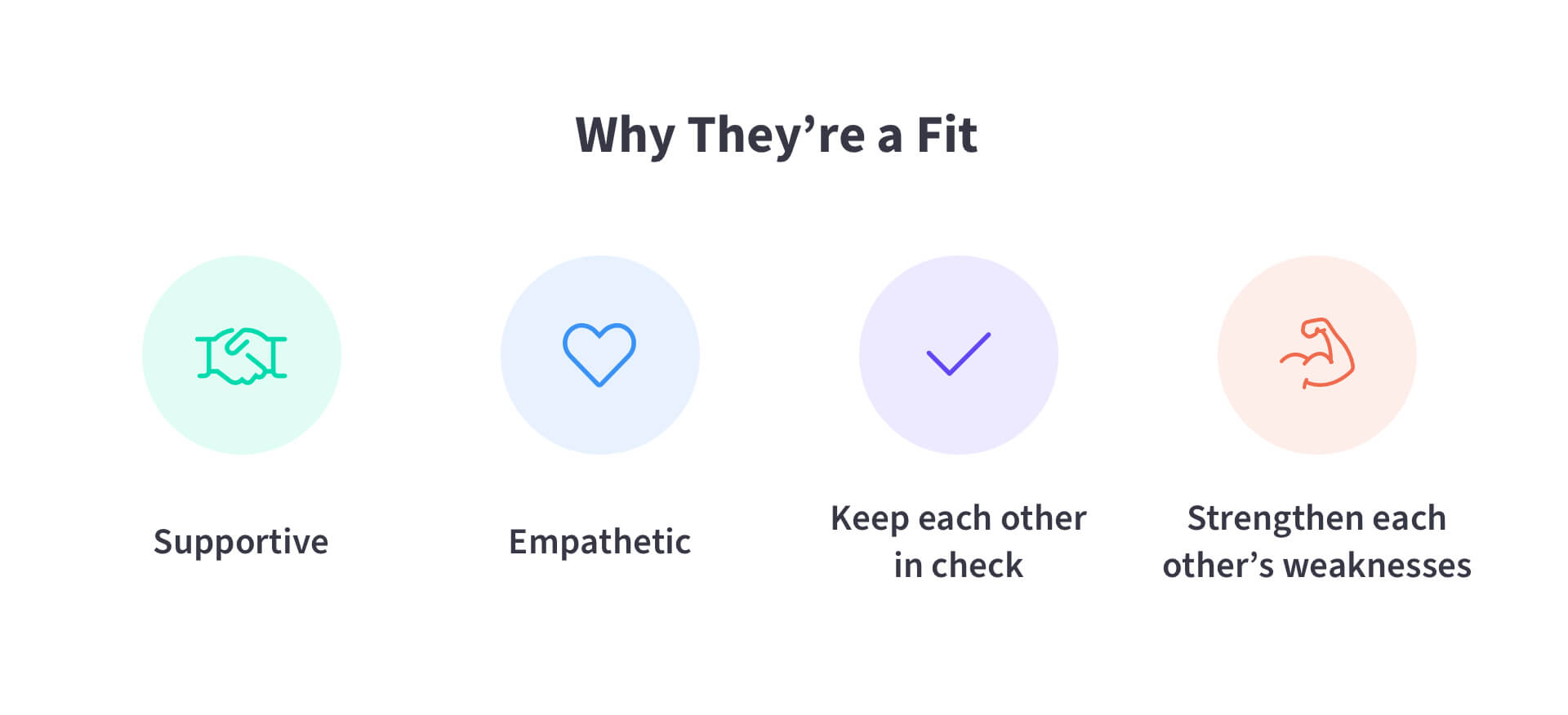SEO + PPC Are Meant to Work Together
Did you know SEO and PPC should be working together?
Marketing is all about working smarter, not harder. However, marketers have been approaching search engine optimization and paid advertising as two separate entities, which means we might not have been informing our strategies as much as we think. SEO and PPC are definitely a team, but in reality…are they soulmates?
It’s no surprise that we as marketers have been separating SEO and PPC for years. We focus on so many different campaigns, tactics, and spin up copy in a blink of an eye. Has it ever crossed your mind that maybe there’s a relationship between the two? I’ve thought about it and realized it was time to get to the bottom of it. It’s time to start informing our marketing strategy by bridging the gap between search engine optimization and paid advertising.
Setting the Stage: Spike SEO and Patty PPC
Marketing is all about journeys and stories, so let’s walk through the story of search engine optimization and paid advertising from the standpoint of two key characters: Spike SEO and Patty PPC.
Spike is frugal (since SEO is essentially “free”) but trustworthy because he wants to give users the most authoritative content. He’s interested in building and architecture since site structure is, of course, important for crawl-ability. His favorite quote is “It’s a marathon, not a sprint!” There may be some quick wins, but you have to be patient with SEO.
Patty on the other hand is “boujee.” She spends money to be the center of attention (top of page) and is friendly, always thinking of others by curating content toward her audience. She loves shopping and making new friends, or in marketing terminology, targeting and gaining leads. Her favorite quote is centered on return on ad spend (ROAS) because it could literally take one ad. Her thought process is: what if we spent $1,000 on ads in one month, and someone converted and we closed a deal for $30,000? She just made a return of 3,000%.
SEO + PPC: A Quick Rundown
There’s no arguing about it, SEO is important. You want to rank in the SERP when people have a search inquiry on Google – especially for branded terms! In order to rank, you should have minimal crawler errors, be easily accessible, and be mobile-friendly.
This includes the idea of EAT, which surrounds content:
- Expertise – Is the creator an expert?
- Authority – People know you, know your background, and look to you as an industry leader.
- Trust – Are you providing trustworthy expert content?
SEO is also taking a turn away from being keyword-focused to user-centered. The user’s needs and pain points are the center, and content should strive to answer and solve needs and/or pain points for a fast and intuitive experience. Spike SEO needs Patty PPC because her landing pages and ads help with messaging ideas to see what resonates with the audience.
Pay-per-click Advertising (PPC) is also important. Depending on the offer, you can gain leads through targeting individuals, which means you have more control over who sees your ads paid advertising. When we create ads, we must step into the user’s shoes, which means we should say no to jargon and give an aligned offer to copy.
Keep some of these thoughts in the back of your mind while you create ads:
- What do you want to see in an ad?
- What are some things that make you turn away/not click?
Patty PPC needs Spike SEO because she needs a bit of his frugality to keep her in check with spending. She also needs great user experience by having quickly loading content and quality content — luckily, Spike can flag when something is wrong!
Why Should PPC + SEO Work Together?
They support each other. We can think about authority here! When we search for a keyword sometimes a paid ad and an organic result show up right next to each other, which is important real estate. There are also other ways to support such as using traffic insights from Google Analytics to inform content to promote and site speed/other UX to determine if a page is user-friendly. Most importantly, they help keep the haters, better known as competitors, out.
They’re both empathetic because they’re designed with UX in mind. Whether that be the landing page itself or copy, the user and the experience are always top-of-mind.
They keep each other in check. We can use paid advertising and search engine optimization insights in unison for a full-picture effect and to inform marketing strategy.
Best Marriage Practices
Happy site, happy life! With an error-ridden, not user-centric site, your pages are going to struggle to rank organically. Not only that, if parts of your landing pages are broken or the content itself doesn’t follow readability best practices, visitors who click on your ads (and spend your money) won’t have the best experience, causing a potential reduction in conversions. We want to overcome those challenges to make sure the site is crawler free to create an optimal user experience (plus, you’ll be deemed more authoritative)!
Hold each other accountable. Cross-reference keywords! If some paid keywords are performing well, use them for organic pages. Paid advertising will give quick results for keywords, so you can test your organic keywords with ads first to see how many impressions keywords actually get to determine if they are feasible to bid on.
Sharing is caring. Use best performing ad copy to inform your organic content and SEO “juice”. Maybe there are certain headlines and descriptions for ads that have a high click-through rate. We can use this information to inform page title tags and meta descriptions for SEO. Another tip is to use some higher-performing web pages as sitelinks on paid ads if they’re relevant! Maybe you don’t want to center a whole campaign around this landing page, but it could be relevant to the ad and gives the user a chance to learn more about your site and offering by clicking on the sitelink.
We’re ready to officiate the wedding between your SEO and PPC marketing



